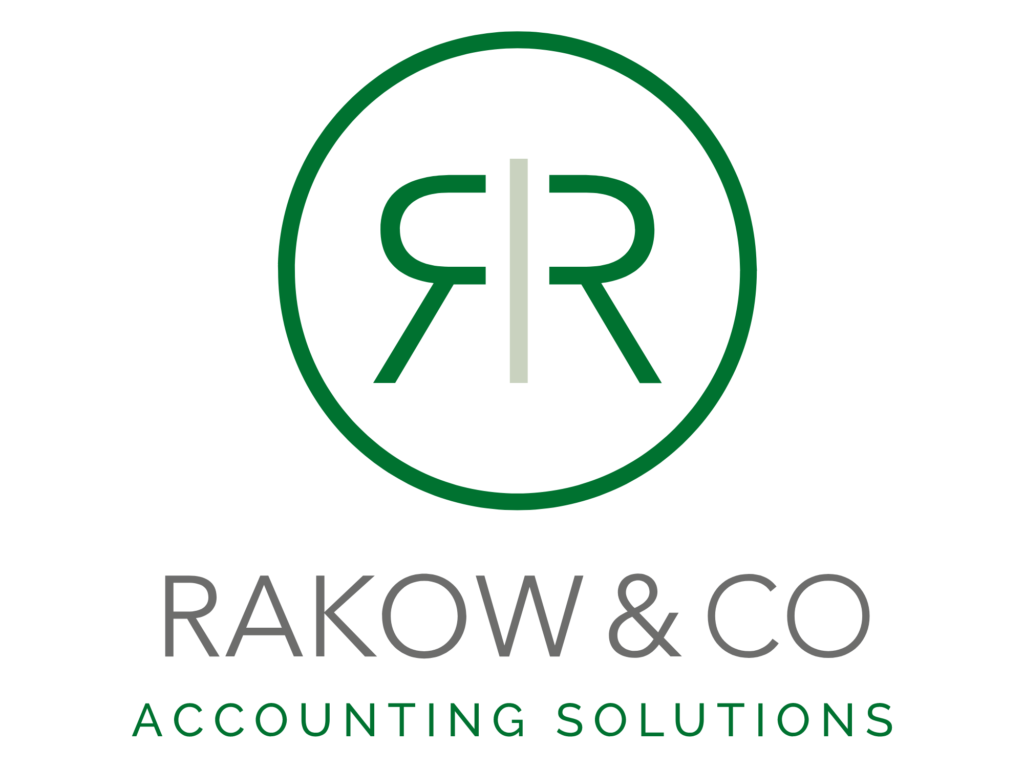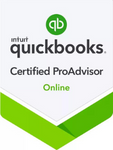From tax laws to labor regulations, the rules seem to multiply every year. But here’s the thing: compliance isn’t just about avoiding trouble. It’s about setting your business up for success. Bookkeeping and payroll services go beyond simple math – they are highly effective tools that can help you maintain compliance with regulations and efficiently run your business.
In this post, we’ll look at how professional bookkeeping services and payroll services work together to keep your business compliant, efficient, and primed for growth. We’ll break down complex topics into easy-to-understand concepts and provide practical advice you can use right away.

Understanding Compliance In Business
Before we get into the details of bookkeeping and payroll services, let’s talk about what compliance actually means for your business.
What Is Compliance?
In simple terms, compliance means following the rules. For businesses, these rules come from various sources:
- Government regulations
- Industry standards
- Internal policies
Compliance is an ongoing process that requires constant attention and updates as laws and regulations change.
Key Areas Of Compliance For Small Businesses
It’s important for small business owners to know about a few key areas of compliance:
- Tax Regulations: This includes federal, state, and local taxes. You need to make sure you’re calculating taxes correctly, filing returns on time, and keeping accurate records.
- Labor Laws: These cover everything from minimum wage requirements to overtime pay, workplace safety, and anti-discrimination policies.
- Industry-Specific Regulations: Depending on your field, you might have additional rules to follow. For example, if you’re in healthcare, you need to comply with HIPAA regulations.
- Financial Reporting: Accurate financial reporting is vital for tax purposes, but also for potential investors or lenders.
- Data Protection: With the increasing focus on privacy, you need to make sure you’re handling customer and employee data correctly.
The Consequences Of Non-Compliance
Now, you might be thinking, “What’s the big deal if I miss a deadline or make a small mistake?” Well, the consequences of non-compliance can be pretty serious:
- Financial Penalties: These can range from a few hundred dollars to thousands, depending on the violation.
- Legal Issues: In severe cases, non-compliance can lead to lawsuits or criminal charges.
- Damage to Reputation: News of compliance issues can spread quickly, damaging your business’s reputation.
- Loss of Business Opportunities: Some clients or partners might be hesitant to work with a business that has a history of non-compliance.
- Operational Disruptions: Dealing with compliance issues can take time away from running and growing your business.
The Role Of Bookkeeping In Maintaining Compliance
Let’s look at how bookkeeping plays a crucial role in keeping your business on track.
What Is Bookkeeping?
Bookkeeping is the process of recording and organizing all of your business’s financial transactions. It’s like keeping a detailed diary of every dollar that comes in and goes out of your business. Good bookkeeping gives you a clear picture of your business’s financial health at any given time. More importantly, compliance requires it.
How Professional Bookkeeping Services Contribute To Compliance
While some small business owners try to handle bookkeeping themselves, there are significant benefits to using professional bookkeeping services:
- Expertise in Accounting Standards: Professional bookkeepers stay up-to-date with the latest accounting standards and best practices, maintaining compliance.
- Up-to-Date Knowledge of Tax Laws: Tax laws change frequently. Professional bookkeepers stay informed about these changes, so you don’t have to.
- Systematic Approach to Financial Management: Professional bookkeepers use proven systems and software to manage your finances efficiently and accurately.
- Time-Saving: By outsourcing your bookkeeping, you free up time to focus on growing your business.
- Less Errors: With their experience and attention to detail, professional bookkeepers are less likely to make mistakes that could lead to compliance issues.
- Audit Support: If your business ever faces an audit, having professionally maintained books can make the process much smoother.
While using professional accounting services, you’re not only following the rules, you’re also preparing your business for financial success. But bookkeeping is just one piece of the puzzle. Let’s look at how payroll services contribute to keeping your business compliant.

Payroll Services And Compliance
Payroll might seem straightforward – you just need to pay your employees, right? But in reality, payroll involves a complicated web of regulations and calculations. Let’s break it down.
Overview Of Payroll Services
Payroll services handle all aspects of paying your employees, including:
- Calculating wages, including overtime and bonuses
- Withholding taxes and other deductions
- Distributing paychecks or direct deposits
- Generating pay stubs
- Preparing and filing payroll taxes
Compliance Aspects Of Payroll
Payroll compliance is a big deal. Here are some key areas where payroll and compliance overlaps:
- Tax Withholding and Reporting: You’re required to withhold federal and state income taxes, as well as Social Security and Medicare taxes, from your employees’ paychecks. You also need to pay the employer’s share of these taxes.
- Wage and Hour Laws: This includes minimum wage requirements, overtime rules, and regulations about when and how often employees must be paid.
- Employee Classification: Correctly classifying employees as exempt or non-exempt, and distinguishing between employees and independent contractors, is crucial for compliance.
- Record Keeping: You’re required to keep certain payroll records for a specified period, usually several years.
- Reporting New Hires: Most states require you to report new employees within a certain timeframe.
- Workers’ Compensation: Depending on your state and the size of your business, you may be required to carry workers’ compensation insurance.
Benefits Of Professional Payroll Services For Compliance
Given the complexity of payroll compliance, many businesses choose to use professional payroll services. Here’s why:
- Accuracy in Calculations and Reporting: Payroll services use sophisticated software to ensure all calculations are correct, reducing the risk of errors that could lead to penalties.
- Timely Tax Deposits and Filings: Professional services ensure that all required taxes are deposited and necessary forms are filed on time, avoiding late fees and penalties.
- Adherence to Changing Labor Laws: Payroll professionals stay up-to-date with changes in labor laws, ensuring your business remains compliant even as regulations change.
- Handling of Special Situations: Professional services can easily handle complex situations like garnishments, benefits deductions, or multi-state payroll.
- Detailed Reporting: For financial planning and in case of an audit, thorough reports from payroll services are very helpful.
- Data Security: Reputable payroll services have strong security measures in place to protect sensitive employee information.
How Bookkeeping And Payroll Services Work Together
There is a direct relationship between payroll and bookkeeping. Bookkeeping prepares business taxes, and payroll services make sure that financial records are correct. They also help with managing cash flow and leave a full audit trail. Both services make sure that labor laws and taxes are followed, and accounting helps with taxes and meeting financial reporting requirements. Payroll and bookkeeping play crucial roles in your business’s financial management, tax preparation, cash flow management, audit trail, and overall compliance.
Benefits Of Integrated Services For Small Businesses
These are some of the benefits of using combined bookkeeping and payroll services:
- Streamlined Processes: When your bookkeeping and payroll are handled by the same provider, information flows seamlessly between the two functions, reducing duplication of effort and the risk of errors.
- Consistent Reporting: Integrated services guarantee that your payroll data aligns perfectly with your financial reports, giving you a true picture of your business finances.
- Time Savings: With one provider handling both bookkeeping and payroll, you have a single point of contact for all your financial questions and needs.
- Cost-Effective: Often, using a single provider for both services can be more cost-effective than using separate providers.
- Comprehensive Compliance: With one team overseeing both bookkeeping and payroll, you can be confident that all aspects of your financial compliance are being handled consistently and correctly.
The Advantage Of Local Expertise
While there are many national providers of bookkeeping and payroll services, there’s significant value in choosing a local provider, especially in a state like New Jersey with its unique business environment.
There are several benefits to hiring Rakow & Co.for your bookkeeping services in NJ:
- In-depth knowledge of state-specific tax laws and business regulations.
- Understanding of unique challenges and opportunities in the local business climate.
- Personalized service compared to large national firms.
- Accessibility for face-to-face meetings and urgent questions.
- Community connection, supporting the local business community and opening networking opportunities.
At Rakow & Co, we understand the challenges small business owners face when it comes to compliance. Our bookkeeping and payroll services are designed to simplify your operations and keep your business on track. Let us handle your compliance needs so you can concentrate on running your business successfully. Contact us today for a free consultation.
FAQs
What payroll taxes am I responsible for as an employer?
Typically, you’re responsible for federal and state income tax withholding, Social Security, Medicare, and unemployment taxes.
What Add-On Services can complement basic bookkeeping and payroll?
Add-on services like financial analysis, budgeting, forecasting, and bookkeeping and tax services can provide additional value and support growth.
What if I’m not comfortable with technology?
Many bookkeeping and payroll service providers offer cloud-based solutions that are easy to use and accessible from anywhere.
Can you provide me with references from your previous clients?
Yes, we can provide you with references from satisfied clients who can attest to our services.
How do I transition from self-managed to professional bookkeeping services?
Start by gathering all financial records. A professional service will then review your books, set up systems, and gradually take over your bookkeeping tasks.
What if I need to make changes to my payroll setup?
Your bookkeeping and payroll service provider can help you make changes to your payroll setup, such as adding or removing employees or changing tax withholding.





